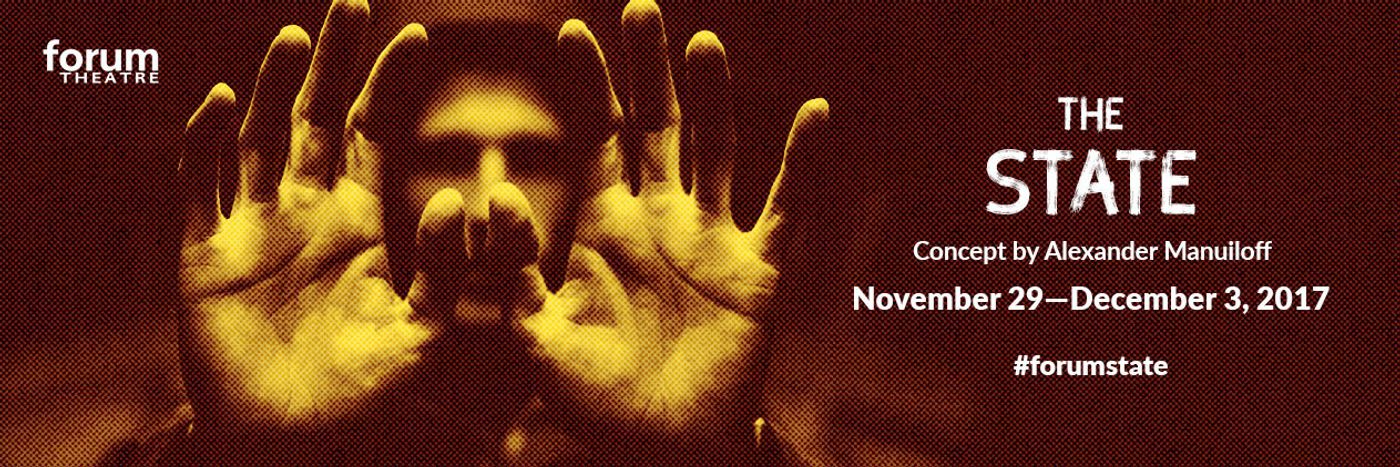Review: THE STATE at Forum Theatre

It can be difficult to write a review without some sort of spoiler. With "The State" it's nearly impossible, but I'm going to try. This is a show where, for better or worse, what's being said takes a back seat to how it is being said. Alexander Manuiloff's experimental concept "The State" is part of politically charged Forum Theatre's fourteenth season.
Manuiloff is originally from Sophia, Bulgaria. His experiences as a Bulgarian are continually drawn upon. The conceptual arch of "The State" centers on Plamen Goranov, a Bulgarian man living near the black sea. Technically, the story we hear is a true story. Plamen Goranov was a real man. He lived in Varna, Bulgaria, which is on the coast of the Black Sea.
On the morning of February 20, 2013, Goranov woke early. He went to the front of the Varna municipal building, doused himself in gasoline, then lit himself on fire in protest of the Bulgarian government. Goranov died in the hospital on March 3, 2013. He was the first in a series of six such protests in Bulgaria.
"The State" is only technically true, because while the events did happen, Manuiloff's exploration of them is akin to magical realism. There are no actors. There is no director. We are the story. Almost every aspect of this production is left to individual interpretation.
It begins with waiting. About forty of us are seated in a large circle of folding chairs around a table. One man is off in a corner by himself. There's a galvanized bucket beneath the table, and a cigar box full of white papers sits on top. A microphone dangles overhead. A single yellow light shines on the table.
The audience sits in darkness as we wait for something to happen. Minutes go by. People whisper. The tension is palpable. I don't want to spoil it, but I promise something happens. Just keep waiting.
Forum Theatre's tagline is "Plays that start conversations", they don't disappoint. When it's all over, the audience immediately begins to talk about what happened. Not just whispers among ourselves, but a full discussion. People talking to strangers across the room. We stay in our circle of chairs for about 45 minutes after the show is done. What the hell did we just experience?
The man in the corner is Alexander Manuiloff. He tells a few anecdotes about past performances, but mostly listens as we discuss. He has seen this production experienced all around the world. One woman asked him if there was anything uniquely American about this particular version. He thinks for a moment then replies that Americans are really polite.
This dishes up a whole new slew of questions. Are we too polite? Would we, most of whom live in the capital of the so-called free world, ever be willing to violently yet peacefully break convention and take a stand in the way Goranov did on that February morning? What does it mean to protest? To participate? (It's worth mentioning that the mayor of Varna resigned two days after Goranov's death.)
"The State" is a thoughtful look into the concept of self and our places as trees in the forest. However, like its subject matter, it's a fragile piece. The effectiveness of this story is completely dependent on who happens to be in the room. That particular evening's grove of trees. Being the overly polite Americans that we are, our wait at the beginning lasted longer than it might have had we been French or Japanese or Ukrainian. It's up to you to decide if that is a good or a bad thing or nothing at all. It's impossible to see "The State" without learning something about yourself.
Reader Reviews
Videos

